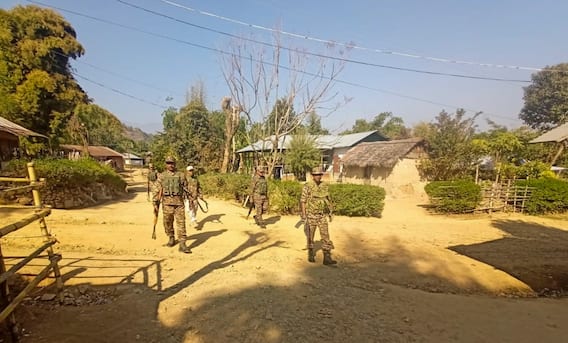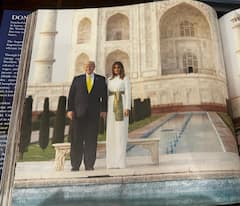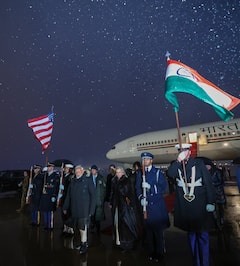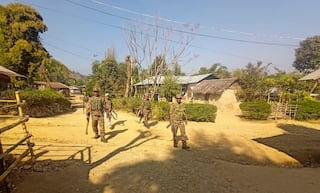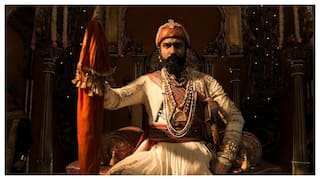Nobel Prize 2021 In Literature: Who Is Abdulrazak Gurnah? The Refugee From Zanzibar
Abdulrazak Gurnah is a Tanzanian novelist who has been awarded the 2021 Nobel Prize in Literature. He is the fifth African writer to win the Nobel.

New Delhi: Tanzanian-born novelist Abdulrazak Gurnah has won the 2021 Nobel Prize in Literature "for his uncompromising and compassionate penetration of the effects of colonialism and the fate of the refugee in the gulf between cultures and continents".
The 72-year-old is only the fifth African writer to win the prize.
Gurnah, who was born in Zanzibar and now lives in the United Kingdom, has published ten novels and a number of short stories.
From Memory of Departure in 1987 to Afterlives in 2020, and Pilgrims Way (1988), Paradise (1994), By the Sea (2001), Desertion (2005), and Gravel Heart (2017) in between, Gurnah’s work has mostly focused on the immigrant experience.
The African writers who got the Nobel before him were Wole Soyinka (1986) of Nigeria, Egyptian writer Naguib Mahfouz (1988), and South Africa’s Nadine Gordimer (1991) and John M Coetzee (2003).
Gurnah was a Professor of English and Postcolonial Literatures at the University of Kent, Canterbury, and he retired recently.
The Zanzibar Native
Born in 1948, Gurnah grew up on Zanzibar island in the Indian Ocean. He reahed England as a refugee towards the end of the 1960s.
Zanzibar, a British colony until 1963, went through a revolution after the liberation. Under President Abeid Karume's regime, citizens of Arab origin were oppressed, persecuted, and massacred.
Gurnah belonged to the victimised ethnic group, and was forced to flee Zanzibar after finishing school. By the time he was 18, the country had together with Pemba Island and other smaller islands, formed the United Republic of Tanzania.
He returned to Zanzibar only in 1984, and was able to see his father shortly before the latter passed away.
Abdulrazak Gurnah, The Refugee
Most of Gurnah's literary work revolves around the theme of refugees’ disruption and how exile shapes cultures.
He started writing at 21 years of age, when he was in the UK. He wrote his novels and stories in English, though Swahili was his first language.
Gurnah believed that his earliest writing could not be counted as literature. The Nobel laureate was inspired by Arabic and Persian poetry, especially The Arabian Nights, according to the Nobel Prize Organisation. The Quran's surahs were also a significant aquifer for him.
The English-language tradition especially marked the 73-year-old novelist's work. Through his writings, he highlighted the perspective of indigenous populations through eversion of the colonial perspective, consciously breaking with convention.
Gurnah's 2005 Novel Desertion is about the love story of a conventionally European hero who returns home from exciting adventures abroad. This tale, which the writer calls "the imperial romance", ends with a tragic denouement. This was his seventh novel.
Since Gurnah belonged to a culturally diversified background, his work recounts a pristine pre-colonial Africa. A number of colonial power were responsible for slave trade and oppression of certain ethnic groups in the island of Zanzibar. Also, the island had trade conditions with the entire world, because of which it was a cosmopolitan society before globalisation.
The wayfaring characters in Gurnah's literary work find themselves in an interlude between cultures and continents, between a life that was and a life emerging. This is an insecure state which can never be resolved, the Nobel website states in the Biobibliographical notes for Gurnah.
In his novel Desertion, Gurnah illuminates the cultural differences in colonised East Africa, weaving them into a tragic tale. He portrays a culturally diversified East Africa in most of his novels, unbeknownst to many in other parts of the world.
Memory of Departure To Afterlives And The Tales In Between
Although Gurnah started writing when he was in exile, he chronicled his relationship with his homeland, implying that memory laid the foundation of his work. Memory of Departure, which he published in 1987, was his debut novel, and the story was based on characters on the African continent. The protagonist is a talented young person, whose father is an alcoholic and whose sister is forced into prostitution.
The protagonist strives to disengage from the social scourge of the coast, and wishes to stay with his wealthy uncle in Nairobi. However, he is subjected to humiliation from his uncle, forcing him to return to his broken family.
Gurnah's breakthrough as a writer was his fourth novel, Paradise (1994). He drew inspiration for this novel from a research trip he made to East Africa around 1990. The novel portrays an innocent, young hero named Yusuf, who traverses into the heart of darkness, and has obvious reference to Joseph Conrad, a Polish-British novelist who wrote the famous novella, Heart of Darkness. 'Paradise' explores Yusuf's journey towards attaining maturity, and a desolate love story.
The novel also portrays different worlds and belief systems colliding amongst one another. The story is set against the backdrop of a violent and detailed description of the colonisation of East Africa in the late 19th century. Yusuf previously despised the German army, but as the story unfolds, he feels forced to leave the love of his life, Amina, to join the German army. This is just one of the many examples of Gurnah's writings where he attempts to thwart the reader's expectations of a happy ending.
Gurnah focuses on the identity and self-image of refugees while accounting their experience. Admiring Silence (1996) and By the Sea (2001) are first-person novels written by Gurnah, both of which highlight how refugees prefer to use silence as a strategy to shield their identity from racism and prejudice. They do so in order to avoid conflicts, but at the same time, it instills a feeling of displeasure and ravaging self-deception.
'The Arriver's Tale: As Told to Abdulrazak Gurnah" in Refugee Tales, is also a unique take on migration and movement.
Afterlives is Gurnah's latest novel, which he wrote in 2020. The story takes up where Paradise ends, and is set in the year 1919, a time before the end of German colonisation in East Africa. The protagonist of the novel, Hamza, who is redolent of Yusuf in Paradise, is forced to join the German army during the war. During an internal clash between German soldiers, he is badly mutilated, and is treated at a field hospital. However, upon returning to his birthplace, he finds neither his family nor friends. The novel also explores the Nazis' plan for the recolonisation of Africa.
Gurnah also writes about Hamza's son Ilias, who is forced to change his name to Elias under German rule. The book depicts how an individual is rendered impuissant and vulnerable when he is forced to be submissive due to the regnant ideology, which is racism in this case.
Trending News
Top Headlines









